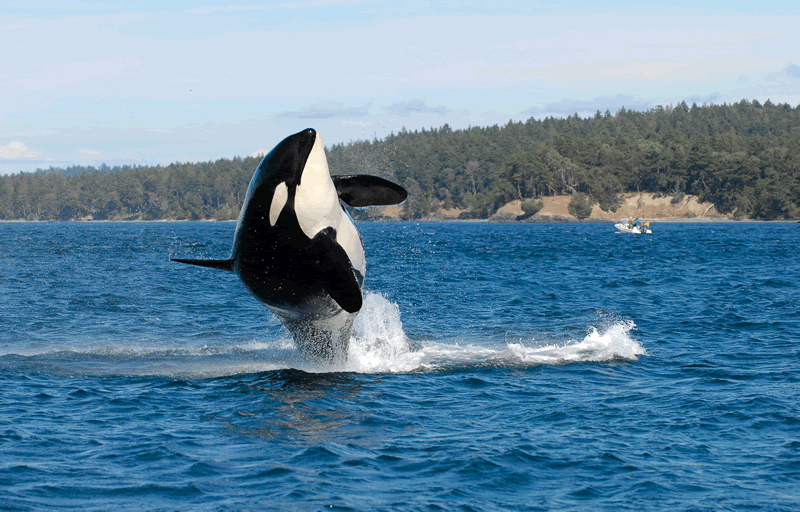

We lost a lot of great people in 2016. We may also have lost one particularly great orca. The killer whale known as Granny, who may have been over a century old, is missing and presumed dead.
Granny was the matriarch of a tiny pod of orcas in the Puget Sound, just off the Northwest coast of Washington. Her official designation was “J2,” and she was spotted by researchers back in 1976. Because she was born before their study started—in fact, she was likely decades-old by that time—she’s one of the only whales that can be confidently aged as super-duper-old.
The estimation is based on the study of her family group. Because of the age of her apparent children, a 1987 study placed her birthday in 1911 (give or take about a decade). While it’s not unheard of for orcas to push 100 in the wild, most females die around age 50. In captivity, they often live only half as long as that. But Granny appears to have outlived all of her offspring, continuing to swim through the Pacific with her grandchildren and great-grandchildren.
Granny has been spotted thousands of times in the past few decades, and in recent years was always spotted leading her pod. Orcas live in a matriarchal culture, where whales stay with their mothers even as they mature and reproduce. These family groups band together into pods with multiple mothers cooperating, but the oldest mom of the pod is almost always the leader.
Unlike humans, most animals don’t live long after their reproductive years end. After all, the point of life—from an evolutionary standpoint—is to make babies and raise them to self-sufficiency so they might make more. Granny likely hasn’t had a calf in close to half a century, but studies have found that menopausal killer whales use their knowledge and free-time to help ensure the survival of their grandchildren and great-grandchildren. A pod with an ancient matriarch leading the charge will have healthier, longer-living whales than one without.
But after decades of protecting her pod, Ken Balcomb of the Center for Whale Research wrote in a recent blog post, Granny seems to have vanished: he saw her at the head of her family group in October, but hasn’t spotted her since. Because the rest of her pod has been seen carrying on as usual—minus their matriarch—we should assume Granny’s incredibly long life has come to a close.
The J pod is one of three that make up the only clan of killer whales designated as endangered. There are now just 78 known individuals among the so-called southern residents. Just 24 whales will carry on Granny’s legacy in J-pod, and researchers worry that dwindling salmon—not to mention the loss of their menopausal matriarch—might spell trouble for the survivors.
